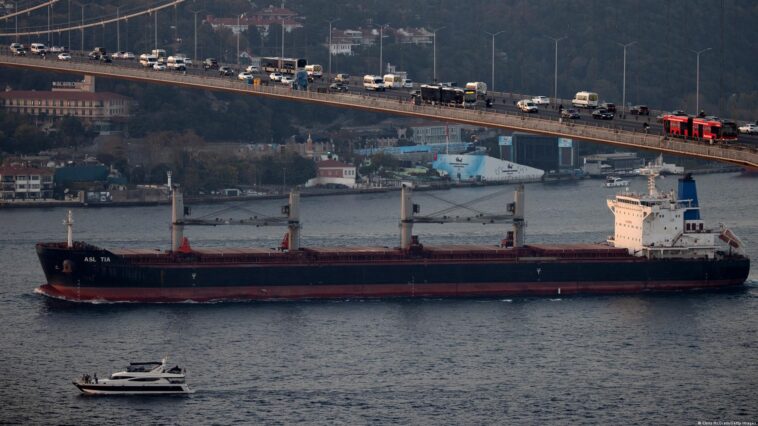Geneva, Switzerland: Following Monday’s discussions with the United Nations, Russia has consented to extend the grain export deal with Ukraine for an additional 60 days.
Moscow stated that it wished to see “tangible progress” on a parallel agreement on Russian exports before the agreement is up for renewal once more.
The grain export deal has helped alleviate the global food crisis caused by Russia’s full-scale invasion of Ukraine last February. The invasion resulted in the blockade of Ukraine’s Black Sea ports by vessels until a July agreement permitted the export of vital grain supplies.
According to the United Nations, more than 24,1 million tonnes of grain have been exported through the Black Sea Grain Initiative (BSGI), which was facilitated by the UN and Turkey.
The initial 120-day agreement had been extended once in November and was set to expire on March 18. The Kremlin had expressed scepticism as to whether it would consent to a new extension, alleging that the bilateral agreement on Russian exports was not being honoured.
After concluding discussions with senior United Nations officials at the Palais des Nations in Geneva, Russia’s Deputy Foreign Minister Sergey Vershinin stated that Moscow wants to see actions, not words, regarding the implementation of the second component of the package.
“The Russian party does not object to a 60-day extension of the ‘Black Sea Initiative’ following the expiration of its second term on March 18,” Vershinin said in a statement issued by the Russian mission in Geneva.
“Our future posture will be determined by the tangible progress made towards normalising our agricultural exports, not by rhetoric but by deeds.
It consists of bank payments, transport logistics, insurance, the ‘unfreezing’ of financial activities, and ammonia supplies via the Tolyatti-Odessa pipeline.
Sanctions Exemptions ‘Inactive’ Claim
Vershinin led the Russian delegation in discussions with UN human rights chief Martin Griffiths and Rebeca Grynspan, the director of the UN’s trade and development agency UNCTAD.
While the BSGI relates to the export of Ukrainian grain, the second agreement, between Moscow and the UN, aims to facilitate the export of Russian food and fertilisers that are exempt from Western sanctions imposed on Moscow.
“The exhaustive and frank conversation has once again confirmed that while the commercial export of Ukrainian products is proceeding at a steady tempo and generating substantial profits for Kyiv, restrictions on Russian agricultural exporters remain in place,” Vershinin stated.
Also read: Supporters of Imran Khan flung rose petals at the convoy transporting
The sanctions exemptions for food and fertilisers that were announced by Washington, Brussels, and London are essentially inactive.
According to UN data, maize accounts for nearly half of BSGI exports, while wheat accounts for more than a quarter.
About 45 percent of exports went to developed countries. China received the most aid, followed by Spain, Turkey, Italy, and the Netherlands.




